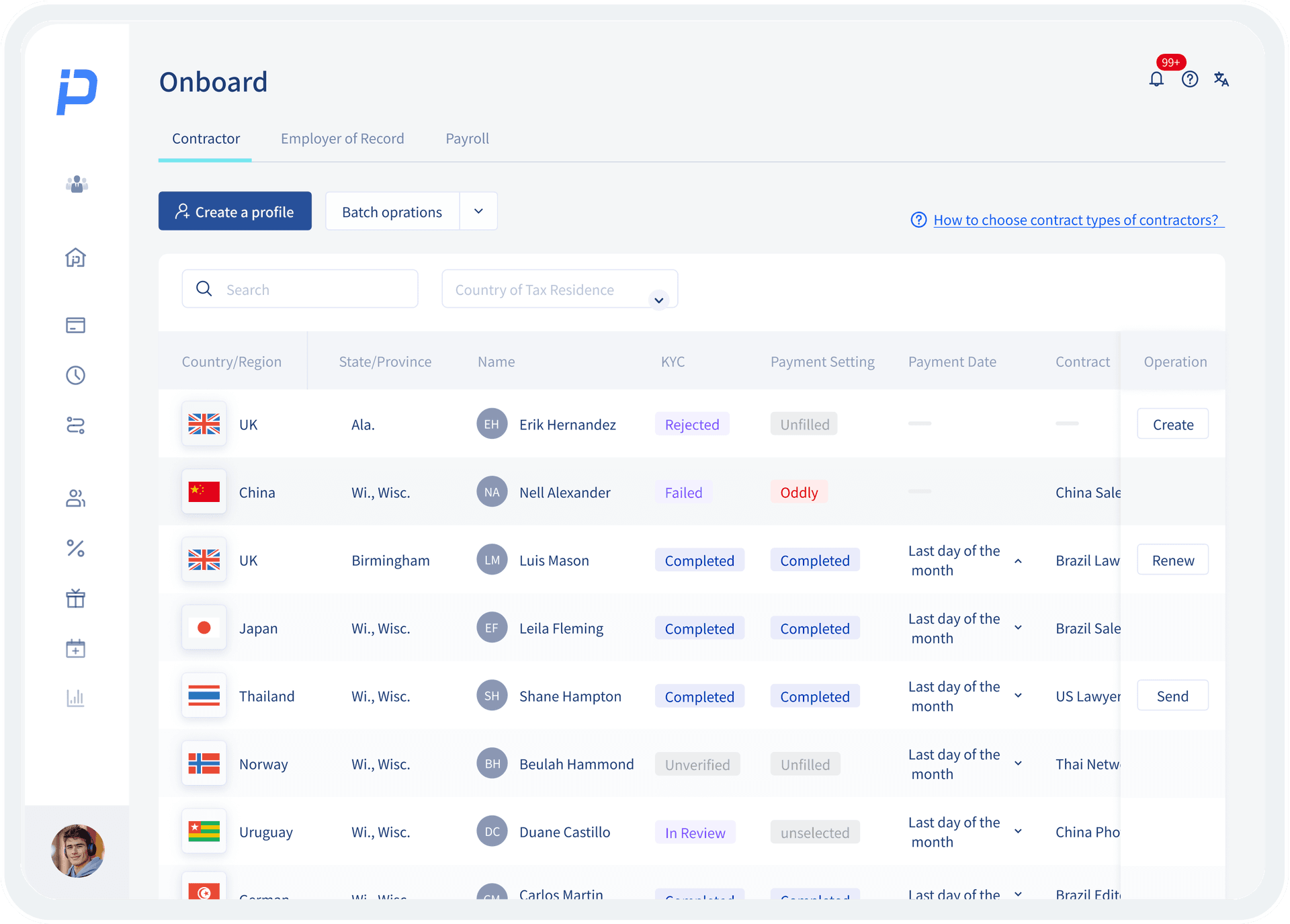Simplify your global expansion with our all-in-one platform. Hire, onboard, and pay talent in 180+ countries, all while staying 100% compliant with local laws. No entity setup required.



Global Talent Access
Hire in 180+ countries within minutes
Seamless Global Payroll
Pay in 120+ currencies with one click
Full Compliance & Support
One platform for contracts, benefits, and compliance
Off we go into the wild blue yonder



























Your Global HR Partner, One Simple Solution
Expanding globally shouldn't mean expanding complexity. PayInOne transforms international HR management from a challenge into your competitive advantage.
From compliance and payroll to comprehensive HR management, we've got you covered. Our all-in-one platform empowers you to hire, manage, and grow your global team with confidence.




Streamline Your Global Workforce Management
Experience seamless integration of HR processes across borders. Our platform simplifies complex international workforce management into intuitive workflows.
Stay compliant with local regulations while maintaining global standards. Let us handle the complexity while you focus on growing your business.
Simplifying Global Employment
One Solution, Endless Possibilities
Transform your global workforce management with PayInOne's all-in-one platform. From onboarding to payroll, we streamline every aspect of employee management while ensuring full compliance across all regions.
Intelligent Automation
Our intelligent system automates essential HR processes including attendance tracking, leave management, expense claims, and performance incentives.
Global Compliance
Operating in full compliance with local employment laws and regulations in every jurisdiction we serve.
Complete Global Employment Solutions,
All-in-one Platform
Streamline your global workforce management with our comprehensive suite of tools and services
Countries Supported
Active Personnel
Partner Companies
Employer of Record
Employ qualified talents through PayInOne's global infrastructure, allow us to share responsibilities and alleviate your concerns.
Active Employees
No Entity Setup Needed
Hire globally without establishing local entities
Compliance Management
Full legal compliance and risk management
HR Administration
End-to-end employee lifecycle management
Implementation Progress
ActiveHire Contractors
Feel free to apply PayInOne's agreement for contractors, set flexible working periods at adjustable rates, and benefit from automated invoicing.
Contract Management
Streamlined contract creation and management for global teams

Automated Payments
Hassle-free payment processing across multiple currencies

Global Compliance
Stay compliant with local contractor regulations worldwide

Performance Tracking
Monitor and optimize contractor performance efficiently

PayInOne Resource Center
Your comprehensive hub for global employment resources and tools
Build a strong foundation for your global expansion with our expert-backed resources and insights.
Join hundreds of successful businesses who have trusted our expertise to navigate their international growth journey.
Every talent you need in every country you hire.
Hire and manage global talent in over 180 countries in minutes. We handle compliance, payroll, and benefits, ensuring a seamless experience for both you and your international team members.









Our customers are the reasons why we are here
Hire and Pay Teams Globally
Your Global Hiring & Compliance Partner
Hire anyone, anywhere. We handle global payroll, compliance, and HR so you can focus on growing your business worldwide.
0+
Countries and regions supported
0+
Global offices worldwide
0M+
Monthly payroll processed
0+
Years industry experience





















